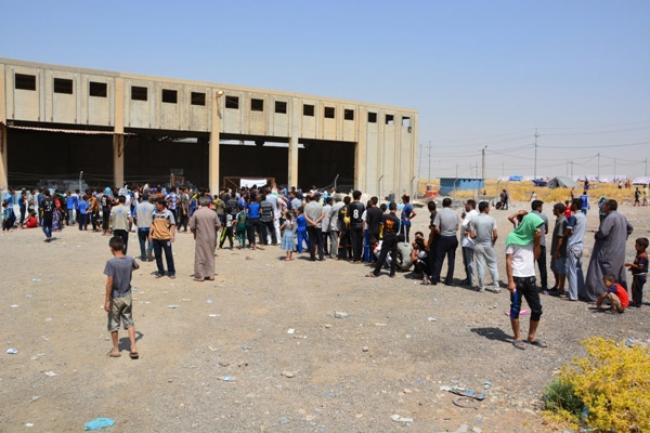28 Aug 2014, 06:27 am Print

According to a press statement, this week alone 2,000 displaced families in Karbala received food assistance after WFP sent convoys from Erbil in the northern Kurdish Regional Government (KRG) area – using a corridor along the Iranian border. More convoys will depart daily from Erbil to Karbala until all 15,000 families registered there have received assistance.
“The humanitarian situation in Iraq is extremely challenging,” said Mohamed Diab, WFP Regional Director for the Middle East, North Africa, Central Asia and East Europe.
“Thanks to the generous contribution from the Kingdom of Saudi Arabia, WFP has been prepared to provide food to communities that need it most and are in a very difficult and complex security situation,” Diab said.
Throughout the country more than 1 million people have been displaced – many without access to food, water or other basic needs. They are living in unfinished buildings, mosques, churches, parks and schools.
“Our team met an Iraqi woman who arrived in Karbala from Mosul in July with her five children and three grandchildren. She said that until she got her food parcels from WFP this week, she had been living hand-to-mouth through random meal donations from citizens,” said Jane Pearce, Country Director for WFP in Iraq.
WFP’s primary food assistance in Karbala, and in most governorates across Iraq, consists of food parcels containing essential items such as rice and cooking oil. Each parcel feeds a family of five for one month. WFP also distributes emergency ready-to-eat rations such as canned food, which provide immediate relief – especially to people still on the move.
“We have different methods to assist people in Iraq. Some people have settled in areas where they have access to cooking facilities, others need immediate relief after days on the road and in the heat. The tailored assistance ensures we can meet people’s urgent nutritional needs,” said Pearce.
Before the latest wave of displacement, WFP was already assisting about 240,000 people displaced by conflict in Iraq’s al-Anbar governorate, as well as more than 180,000 refugees from the conflict in Syria who are sheltering in Iraq.
People waiting in line at Baharka transit camp in Erbil to receive their food assistance from WFP. Photo: WFP/Mohammed Albahbahani
- Viral Irish food bank photo sparks shocking racist attacks on Indians
- Caught on camera: Two foreigners assaulted in Israel in an alleged racial attack
- Pakistan: Parents heartbroken after court sides with man accused of kidnapping minor Christian girl
- Pakistan: Trafficked 35 years ago, Bangladesh-born woman approaches court against FIA for offloading her from flight!
- Hindu tea worker found bound and bloodied in Bangladesh garden during general elections; investigation underway





-1763561110.jpg)
